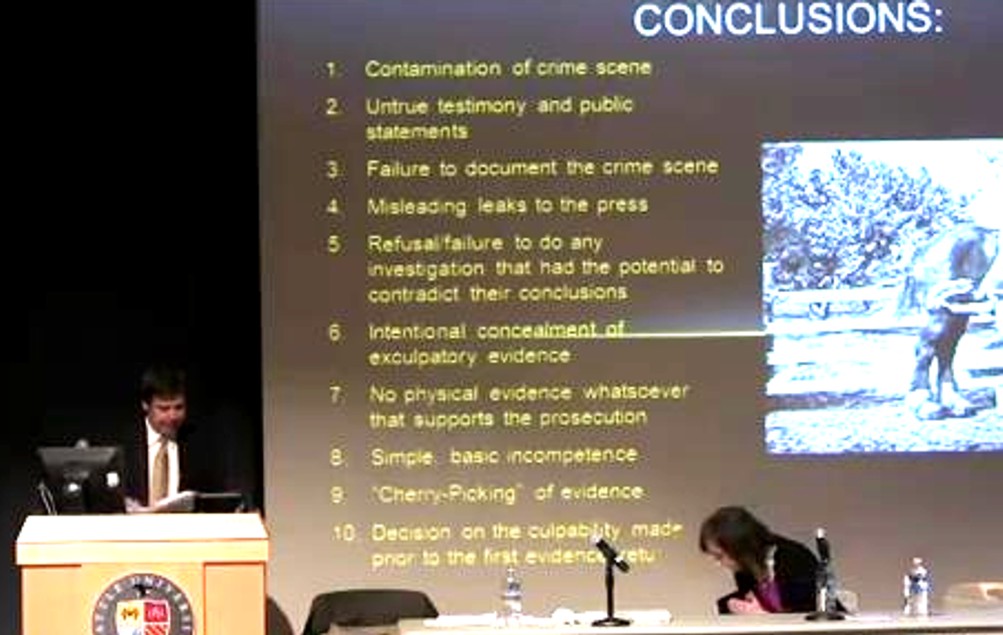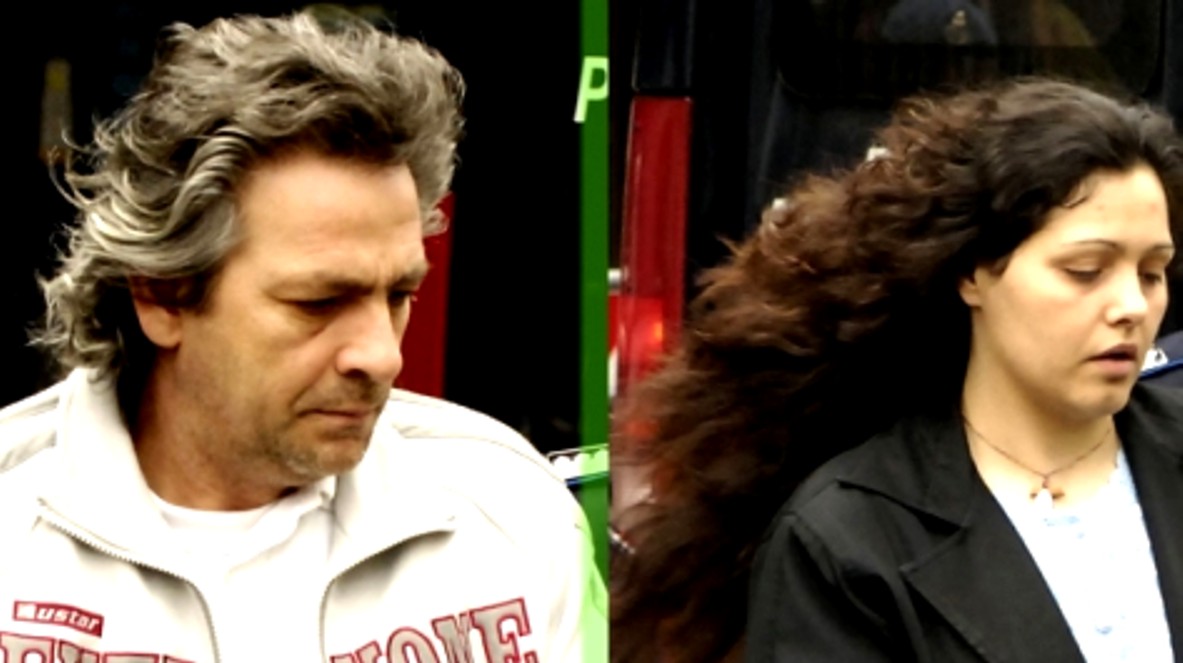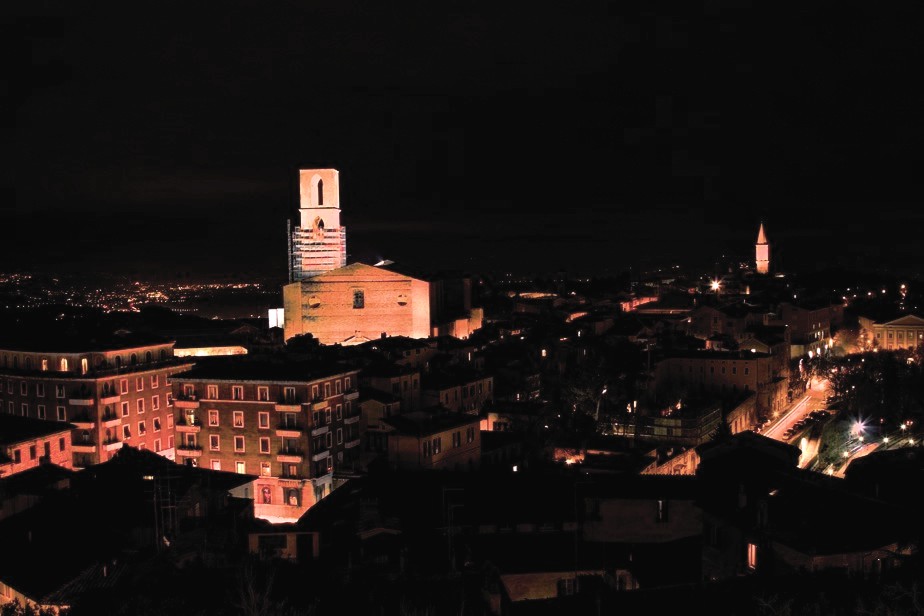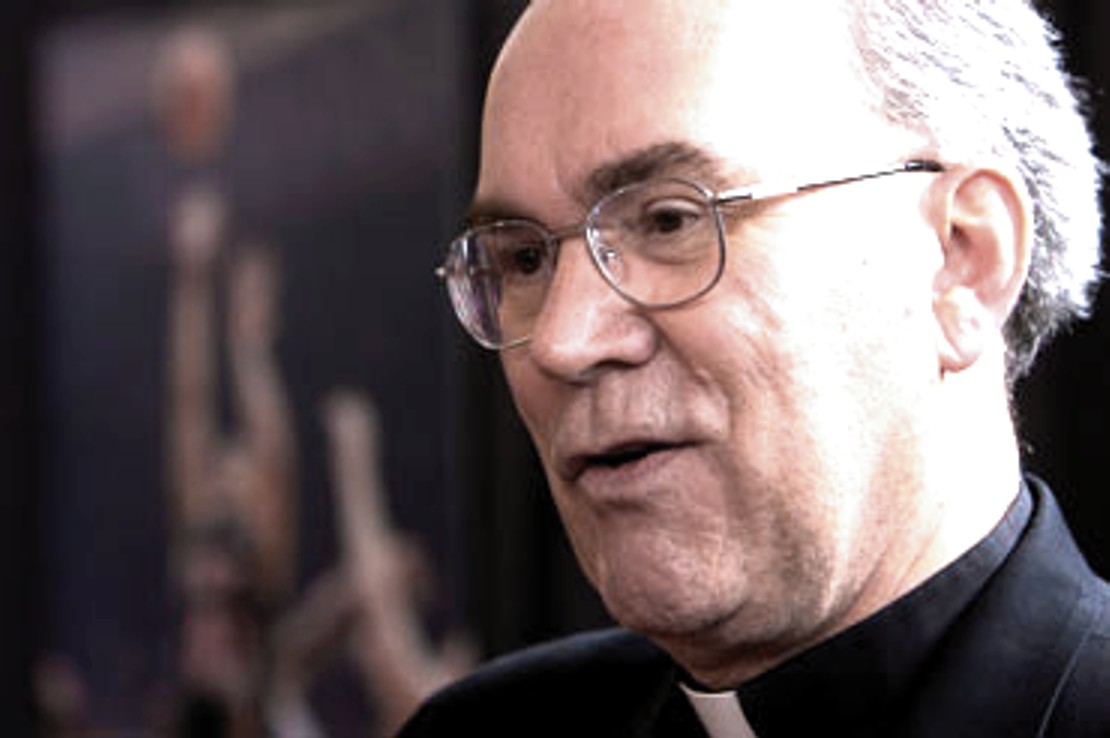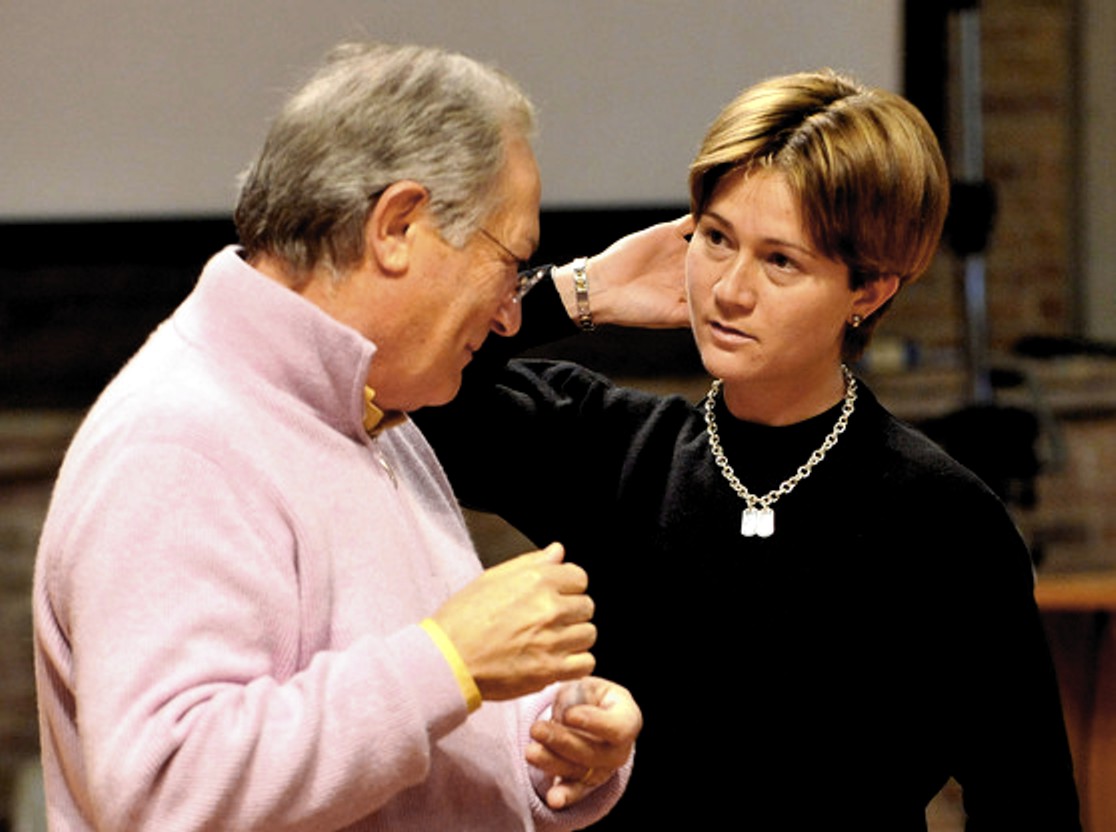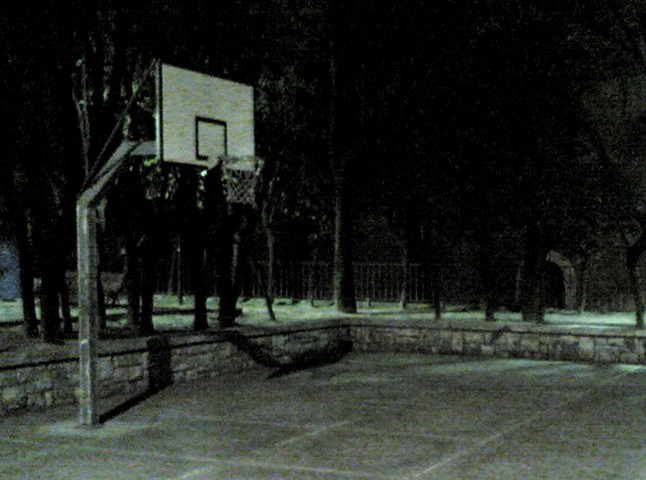
Sunday, April 10, 2011
Will Savive On Amanda Knox On The Witness Stand On The Morning of June 12 2009
Posted by Peter Quennell
Unlike Sollecito, who has exercised his right to silence, Amanda Knox had volunteered to take the stand. As we have seen, the Italian justice system has several differences from that of the United States Justice system. One of those differences is that in an Italian trial witnesses must swear to tell the truth. However, defendants do not.
Defendants can also interrupt the questioning at anytime or even choose not to answer certain questions, in theory of course, though in practice it would be a bad move (incriminating) if a defendant chose not to answer. One of Knox’s lawyers, Luciano Ghirga, told reporters a week earlier that Knox would be answering all of the prosecution’s questions.
Knox’s defense team, however, would offer-up objection after objection on even the simplest questions, and this came on the day that was scheduled just for defense questioning (aside from Patrick Lumumba’s lawyer). Every time Knox was caught in a contradiction, a fight would break-out between defense and prosecution. Knox’s vague answers along with her lawyer’s objections distracted lawyers and made it very hard for them to extract anything substantial out of her.
It was apparent early on that this was going to be a long drawn-out examination with nothing substantial provided toward her defense. Not only was Knox vague, but she seemed annoyed and not necessarily eager to tell her story; even using sarcasm on a few occasions and snapping at prosecutors. In the end, her testimony hurt her more than it helped her, because it did not help clear up her whereabouts at the time of the murder, and it lent to the notion that she was lying….
The schedule for the day was going to be questioning from her own defense team, along with questioning from Patrick Lumumba’s lawyer, Carlo Pacelli. Knox entered the courtroom with her hair tied back with a light-blue scrunchy, a white short sleeve collared top, pale trousers, and what appeared to be a large cold sore on her upper lip. She looked tired and pale as she took her seat, and looked around nervously as reporters jockeyed for position at the back of the courtroom.
The beginning of the session was held up a bit as Judge Massei discussed with lawyers whether to allow cameras in the courtroom. The final decision was to exclude cameras, allowing cameras to roll during only the first 20 minutes of Knox’s testimony. Questioning began with Carlo Pacelli, who would get the first crack at Knox as part of Lumumba’s civil lawsuit. Seated immediately to Knox’s left was a heavy-set, brunette interpreter. Knox understood most questions that were thrown at her and the interpreter mostly translated to the court what Knox was saying as opposed to what Knox was being asked by Italian litigators.
Mr. Pacelli started by asking Knox if she knew Rudy Guede. Knox admitted meeting Guede before the murder, claiming that she met him while she was mingling with the boys that lived in the apartment underneath her. Knox said that they were in the center, near the church, when the boys introduced her to Guede. On that occasion, Knox says that she spent most of her time with Meredith, as they all (including Guede) went back to the cottage and had a party on the first floor. This party apparently took place in mid-October of 2007, a little more than a month before the murder. Knox also admitted seeing Guede at Le Chic (Lumumba’s restaurant) at least once.
Knox said that at the party she and others smoked a “spinello” (“marijuana joint”). Pacelli then focused on Knox’s relationship with Lumumba. Knox testified that Lumumba never mistreated her, always treated her with respect, their relationship was good, and she was not scared of him. Mr. Pacelli then brought Knox back to the night of the murder, asking her if she knew what time it was when Lumumba sent her the first text message on 1 November 2007. Knox said “around 8:15-8:30p.m.”
When asked, “When you answered Patrick’s message, where were you?”
Knox replied, “In the apartment of Raffaele, I think, yes.” Pacelli indicated that Knox answered the message 25 minutes later from another location. “It seems from cell pings that you were out of the house when you answered, in the center. Where were you?” asked Pacelli. This question was met by a stream of objections and a heated discussion between defense and prosecution. When the dust cleared Knox stated that she was at Sollecito’s apartment when she responded to the message.
Knox had deleted all received text messages on her cell phone at some point after receiving the last message from Lumumba. Knox claimed that this was because she had limited space on her cell. When asked why she did not delete the text messages that she sent, she answered very sarcastically, “I’m not a technical genius, so I only know how to delete the ones that I receive when I get them.” Knox told the court that she didn’t have an appointment to meet Lumumba at the basketball court on the night of the murder.
When asked why she wrote in her statement to police that she met him at the court that night, Knox responded, “It was a complicated situation. I can explain it if you want me to go into it.” Knox then proceeded to explain her version of what occurred and why she wrote what she did in the spontaneous letter to police after her arrest. She proceeded to explain what she claimed was a long grueling interrogation where police began asking the same questions over and over.
Then, in a long, drawn-out, drab tone that only an American could understand (due to the prosodic “” rhythmic, intonational aspect of human speech “” nature of the tone), Knox said that they kept asking her questions such as “w-h-o k-i-l-l-e-d M-e-r-e-d-i-t-h,” that sounded as if she was down-playing the question, because she had heard it so many times. Knox began to show several glimpses into the bizarre behavior that was previously testified to by others.
Although it may sound trivial, the response was strange; and coupled with the multiple accounts her of odd behavior, it only added to the quandary. During this monologue, Knox stated that police called her a “stupid liar,” several times when she asserted that she had been at Sollecito’s flat all night. Knox then quoted her interpreter during the interrogation, claiming that she had said that Knox was “traumatized and couldn’t remember the truth.”
Knox then continued with her confusing explanation of what happened during her interrogation/arrest:
So what ended up happening was that they told me to try to remember what I apparently, according to them, had forgotten. Under the amount of pressure of everyone yelling at me, and having them tell me that they were going to put me in prison for protecting somebody, that I wasn’t protecting, that I couldn’t remember, I tried to imagine that in some way they must have had, it was very difficult, because when I was there, at a certain point, I just, I couldn’t understand why they were so sure that I was the one who knew everything.
And so, in my confusion, I started to imagine that maybe I was traumatized, like what they said. They continued to say that I had met somebody, and they continued to put so much emphasis on this message that I had received from Patrick, and so I almost was convinced that I had met him. But I was confused.
The next few questions were met with objections by Knox’s lawyer, Carlo Dalla Vedova, and banter between he, the judge, and Pacelli. More objections came when Pacelli asked Knox why she claimed to hear Meredith scream, with now several different lawyers arguing and trying to plead to the judge their reasons why the question should or should not be answered. The argument centered on what was and was not admissible according to the Supreme Court decision at the beginning of trial. Judge Massei then declared that they would take a short recess and he would consult with the lawyers in private on the matter.
When they returned, Judge Massei overruled the objections and stated that the question is permitted because it comes from Knox’s spontaneous statement, which was ruled as admissible during the first week of trial. Knox then switched to speaking Italian upon Judge Massei’s approval. Finally, Knox was able to answer the question, which she replied, “No,” I did not hear Meredith scream.
The following sequence occurred next:
Carlo Pacelli: In the interrogation of November 6, 2007, at 5:45, you declared that before she died, you heard Meredith scream. How could you know that Meredith screamed before she was killed? Who told you?
Knox: So when I was with the police, they asked if I heard Meredith’s scream. I said no. They said “But if you were there, how could you not hear her scream? If you were there?” I said “Look, I don’t know, maybe I had my ears covered.” So they said “Fine, we’ll write that down. Fine.”
Carlo Pacelli: [louder] But I can tell you that on November 6, the police did not know that Meredith screamed before she died, so why would they suggest it to you?
Knox: I imagine that maybe they were imagining how it might have been.
Knox asserted that police were not telling her what to say but suggesting paths of thought. “I kept following their suggestions,” Knox stated. “They asked me if I was in her room when she was killed. I said no. They said but where were you? I said I don’t know. They said, maybe you were in the kitchen. I said, fine.”
Knox testified that she went to the police station with Sollecito the night that they were arrested because she was scared and didn’t want to be alone. She verified that she was not called-into the station that night. Knox also confirmed that the spontaneous statement that she made was her idea, and not the result of pressure from police. Knox said that she asked for a piece of paper and a pen, and that she wrote it to explain her confusion to the police.
Knox then said several times that while at the police station after her arrest she “really wasn’t sure” what had happened on the night of Kercher’s murder. Knox told the court that she gave the written statement to the police freely, voluntarily, and that police did not suggest the content nor pressure her into writing the statement.
The following sequence occurred next:
Carlo Pacelli: Listen, in this memorandum, you say that you confirm the declarations you made the night before about what might have happened at your house with Patrick. Why did you freely and spontaneously confirm these declarations?
Knox: Because I was no longer sure what was my imagination and what was real. So I wanted to say that I was confused, and that I couldn’t know. But at the same time, I knew I had signed those declarations. So I wanted to say that I knew I had made those declarations, but I was confused and not sure.
Carlo Pacelli: But in fact, you were sure that Patrick was innocent?
Knox: No, I wasn’t sure.
Carlo Pacelli: Why?
Knox: Because I was confused! I imagined that it might have happened. I was confused.
Then the questioning turned to when Knox realized that Patrick Lumumba was innocent. Several fights and objections broke out over this line of questioning. The defense seemed to know that Pacelli was onto something and they were trying at all ends to block him or throw him off. Pacelli explained that in Knox’s 7 November 2007, memorandum, Knox wrote, “I didn’t lie when I said the murderer might be Patrick.”
However, Pacelli said that during a phone call with her mother on November 10th (three days later) Knox stated that she felt horrible because she (Knox) got him [Lumumba] put in prison and she knew he was innocent. Knox, then speaking like a politician, led Pacelli -and even the judge - around in circles; not giving a straight answer to the question: when did you inform police that Patrick Lumumba was not the killer?
Pacelli was trying to show that Knox had written that Lumumba was the killer on the 7th, told her mother that Lumumba was innocent on the 10th, but never informed the police at anytime after the 10th that Lumumba was innocent. He was subsequently released three weeks after his arrest, and at no time during the three weeks did Knox inform police that she falsely accused Lumumba. Knox’s final reply on the matter was, “I had explained the situation to my lawyers, and I had told them what I knew, which was that I didn’t know who the murderer was.”
So, Knox never really did answer the question why she never informed anyone - besides her mother on November 10th - that Patrick Lumumba was not the murderer. This was important because Pacelli already knew what Knox’s mother had told investigators about the call and what the basis of her testimony would be. Pacelli knew that her mother’s testimony was coming up the following week, and he wanted to get Amanda’s version on the record knowing that her mother would clarify and contradict - or at least not help - her (Amanda’s) story. Knox also revealed that she never actually said she was sorry to Patrick for her false accusations that put him behind bars for three weeks.
With that, Carlo Pacelli ended his questioning. Judge Massei then announced a break in the action and that the court would reconvene at 1:30p.m.
_______________
From The Study Abroad Murder by Will Savive
[Below: Falsely accused Patrick Lumumba and his lawyer Carlo Pacelli]

Friday, April 08, 2011
A Witness Icognito: Could Outnumbered Knox And Sollecito Defenses Be Forced To Resort To This?
Posted by Peter Quennell

Luciano Aviello is the so-called Camorrah Supersnitch from Naples. He has not been photographed in two decades.
When he testifies in court, he does so from behind a curtain, so that back in his cell he can sleep easier. Perhaps make that: can stay alive.
The beautiful scene below is of Alba, north of Genoa and south of Turin in northwest Italy, where Luciano Aviello may or may not be in the prison there. Nobody seems to know for sure.
We first described what is know of Luciano Aviello back here in June of last year, along with some excellent satire.
Aviello explosively emerged as a possible key defense witness - the US and UK media made a really huge deal out of this - when he claimed that his missing brother was the real murderer, along with two others.
And that Aviello knew where some evidence was hidden (not yet actually unearthed).
As with the hapless Mario Alessi, on whom we posted earlier this week, Luciano Aviello was interviewed not only by the defenses, but also by Prosecutor Mignini and Ms Comodi.
The Italian police also investigated his claims - and they did a surprise search of his prison cell. Nothing is known of what the police and prosecution found out, which makes Aviello something of a one-man minefield.
Even in the middle of last year, Luciano Aviello did not sound too credible.
Here now is an excellent new profile of Aviello and the credibility of snitches like him. It is by Mike La Sorte, a professor emeritus at the State University of New York. Mr La Sorte includes this:
On November 1, 2007, in the Italian city of Perugia, Meredith Kercher was murdered. A trial was held and Amanda Knox was found guilty of the crime and imprisoned. At the time of the murder Luciano Aviello was out of prison and living in Perugia with his brother, Antonio. Returning to prison for extortion, Luciano from his cell in the Spring of 2010 came forward to announce that the true slayer of the victim was Antonio.
“Yes,” he declared, “it was my brother who killed Meredith during the commission of a break-in. I can produce the weapon of the crime and the keys to the house.” This generated international attention and got Avellino into the newspapers. His confession gave the defense the excuse to reopen the case to review the evidence. [Actually the mandatory appeal was already pending.]
Camorra expert Gigi di Fiore said of him: “Aviello is a strange person. He has had several contacts with the Anti-Mafia Commission and was judged to be less than truthful, a confused youth in search of publicity. He would want to exchange information for protection but had little to offer. His story is an emblematic event of no merit.”
Why could Luciano Aviello’s testimony on his claimed murderous brother (who presumably does know what he looks like) really, really matter to the besieged Knox and Sollecito defenses if it is believed?
These are the reasons:
- 1) The Supreme Court of Cassation has already accepted that overwhelming evidence proves THREE people - Guede and two others - all attacked Meredith.
2) There are literally hundreds of evidence points pointing to Rudy Guede and Amanda Knox and Raffaele Sollecito - in fact MORE point to Knox and Sollecito.
3) Despite the absurd claims of the dispirited conspiracy panel at Seattle University Monday night, not one evidence point - NOT ONE - points to anyone else.
The defense lawyers actually get along well with Mr Mignini, and they know that the justice professionals have really done an okay job. They have never once claimed that any evidence was fabricated, or that investigators made things up, or beat or starved Amanda Knox, or performed any other criminal act. They seriously need to finger other perps.
So. Look forward to welcoming the colorful if invisible Mr Aviello. We sure do look forward to seeing you. Or not, as the case may be.
Thursday, April 07, 2011
Sollecito Family Trial: On The Component About Their Alleged Attempt At Political Interference
Posted by Jools
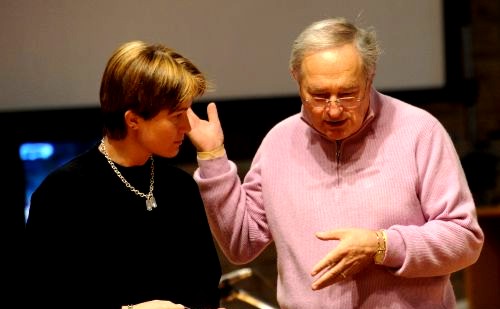
Almost nothing is showing up in the English language media on the court case Raffaele Solecito’s family are facing for allegedly trying to throw the murder investigation.
In the Italian media (as so often in this case) the reporting on this is franker, fuller, and on the whole way more honest. I previously posted articles that focussed mainly on the Telenorba TV video component of the trial.
This now is a translation of a June 2008 writeup of official wiretaps on a police association website of the political-influence component of the trial. The police association would be interested because it was some of their members allegedly being impugned.
Perugia Flying Squad: other interceptions published.
The role of Carabinieri lieutenant, Vanessa Sollecito, becomes stronger from the latest interceptions published by the daily newspaper LIBERO”¦
THE TELEPHONE CALLS OF THE SOLLECITOS’ TO POLITICIANS FOR RAF
The relatives are accused of manipulating the investigation. The sister a lieutenant: “I break a finger and I move to the civilian personnel this is how I’ll get him out”
Murder in Perugia. This is the sister of Raffale Sollecito, the student from Giovinazzo charged with the murder of the young English girl Meredith Kercher, who in a telephone call to her father Francesco tells him that she is prepared to break a finger just to transition into a civilian role in the carabinieri and succeed like this to pursue an “illicit” scheme to get her little brother out of prison and help him to get out of this sh**”¦ country.
Vanessa Sollecito is 31 years old and she is a lieutenant of the Carabinieri armed forces in the Lazio Region. She too, like her father and the rest of the relatives (uncle/aunt, a brother in law, cousins, dad’s second wife), try to gain favors from well known “excellent” people in order to exonerate Raffy and to remove the “real culprits”. These (“real culprits”) would be the police officers that have placed him under investigation and the magistrates who don’t want to know about freeing him.
The Sollecito “clan” (this is how who’s investigating the murder of Via Della Pergola defines Raffaele’s family) is written in the logbook register on the occasion of a second line of police investigation on the murder of November 2 last. The alleged offences are: defamation, invasion of privacy, and publication of arbitrary acts of a criminal case.
The time is 18:20 hours March 3 last [2008] when Vanessa phones her father (a well-known cardiologist [sic] in Puglia) and announces: “I’ve met a man, he is from the penitentiary police who works at the Ministry of Justice. He says that a union leader has explained to him that there is one way for transitioning into the carabinieri civilian staff role, although it is not very legal. And that is for me to break a finger, if things were to go down badly for Raffy, in order to lose the (fit to serve) eligibility” and move to the authority in control of civil service roles.
Francesco Sollecito gets very angry. Not about his daughter breaking a finger, but because he knows that his phone is being intercepted, and screaming he says: “You mustn’t speak on this phone, it is intercepted.” And Vanessa says: “Yours might be intercepted, but not mine!”
Two weeks later, it’s the morning of March 17 - at 10:59, Vanessa tries to phone the “˜Idv’ party - Senator Domenico Formisano - in order to go to meet him. And conveys to her father “He is our friend. He asked me a favor for a young man who must stay in Rome. He’ll be in his office Wednesday at 12:30, I hope to please him so afterwards I make use of the favor owed and will help Raffaele. He is the number two to Di Pietro.”
It’s [a date in] May at 10:23 and aunt Sara Achille (wife of Francesco Sollecito’s brother, Giuseppe) says: “Listen Francesco, Senator Domenico Nania told me to call him to arrange for a meeting in Rome. You know, it’s always better to have a nice… And Sara wanted to involve in the affair even the honorable Renato Schifani.”
Three days before, at four in the afternoon, Vanessa also spoke to her father in a “sarcastic” tone: “That lot are still going to take the foot prints”¦ Colonel De Fulvio, who is the one from RiS, says that they are still at this point”¦ and he’s offered himself to meet up with lawyer Bongiorno in terms of friendship, to see the scientific police material”¦”
[Her father Francesco] Sollecito interrupts her: “About these things you must not speak on this telephone, THIS ONE IS BEING MONITORED! Call me later.”
Uncle Giuseppe Sollecito, on July 30, utters offensive phrases toward the magistrates in Perugia because they haven’t gone in-depth into investigating the trail of the junkie found covered in blood near the victim’s house the day of the murder… “and this is just on purpose to keep Raffaele in prison”. His brother Francesco responds: “I’ll skin them alive those… and they’ll hear from me as well.”
Raffaele’s stepmother Mara Papagni, puts her complete trust in lawyer Giulia Bongiorno: That one “Ms Thirtyballs” will fix everyone”¦ She knows how to behave on certain occasions.
The strategy of Sollecito’s relatives appears to be clear in other wiretappings: they want to put pressure on the judges of the Supreme Court of Cassation so that they’ll agree to accept the appeal presented by the defenders of the young man, they prefer that some investigators whom they regard as inconvenient be removed from the investigation.
In their targets above all are Commissioner Monica Napoleoni, head of the [Perugia] Homicide Section, and Giacinto Profazio, head of the Flying Squad. In their phone calls, the Sollecitos call them bastards, pigs, sons of whores. And they all agree: “We must find someone to intervene at any rate. As written in the logbooks: Its necessary to stop police from doing other vileness.”
The “clan” accuses them of falsifying evidence to frame Raffy. And for this reason they contact journalists and television networks to supply documents and images for broadcasting (such as those depicting the tortured body of poor Mez after the murder and aired by a local television in Puglia).
They wanted to demonstrate that the scientific police played dirty to frame Raffaele. Now the Sollecitos’ and their respective wives are under investigation.
The Seattle University Panel: Some Of The Ways In Which Steve Moore Got His Analysis Wrong
Posted by James Raper
I have watched the clip of Steve Moore’s address at the University of Seattle seminar.
1. Scenario of the crime
Steve Moore starts with the assertion that it is obvious what happened. Guede broke in via Filomena’s window and went to the loo.
Meredith comes home and is attacked, raped and murdered by him. Naturally he did not show a photo of Filomena’s window from outside the cottage. I wonder why?
Meredith came home at 9.30pm. She died some time after 11pm. Steve Moore does not elaborate as to what Guede was doing all the time in between. He sat on the loo for a long time and/or the sexual attack went on for a long time? Both unlikely hypotheses.
2. Concerning bleach
Then Steve Moore turns to what he states is “The Lie over the Bleach Cleaner”.
Whether or not the police/prosecution ever said that they thought bleach cleaner had been used is not clear to me. Whether or not they had, it was not something that they continued to insist on. No one smelt bleach at the cottage on the 2nd November.
In any event Steve Moore has his own argument (which, to be fair, I did follow) to demonstrate from the pictures of the luminol traces that there could have been no bleach used as a cleaning agent.
“No bleach, no clean up!” The fact that one can wipe away relatively recent blood/bodily fluids without bleach escaped him.
Having established that there was no bleach used he explains the luminol glow as being due to ..yes.. bleach!
3. The luminol footprints
Drawing on his claimed considerable FBI experience (yet to be validated by anybody) he asserts that luminol reacts to bleach as strongly as blood.
Experienced forensic experts say that they can often tell the difference because the strength of a reaction all depends on the concentration in bleach ““ bleach which was not used in a clean up and which no one detected by sense of smell.
He then goes on to say that bleach is commonly used as a household cleaner. Yes, the main constituent of bleach is chlorine or chloride, commonly used, diluted with other ingredients, in some household cleaning fluids, though of course bleach can be bought as bleach.
Steve Moore says that Amanda Knox took a shower on the morning of the 2nd November, standing in the shower basin in diluted bleach (very diluted after a shower, one would think) and then traced that around, accounting for the luminol glow.
You do not have to be terribly clever to see that if that was the case then the luminol glow would not be all that bright due to the dilution. One can see from the photos that the glow was in fact very bright.
One also has to wonder why straight from the shower she stepped in Meredith’s invisible blood (in fact she says she scooted from the bathroom to her room on the bathmat) without the diluted bleach degrading Meredith’s DNA.
4. Concerning TMB tests
Steve Moore asserts that Stefanoni lied about TMB tests. TMB is tetramethylbenzadine and it is used to establish whether a detected trace is blood or not.
The reactive process is the same as with luminol which has to be used to detect a trace in the first place. It is to do with the peroxadase-like activity of heme. The results look different however, TMB produces a change of colour whilst luminol produces a glow in the dark.
Steve Moore was initially appalled to think that Stefanoni did not use the TMB test on the luminol revealed traces, but then it was discovered that she had and the results were negative as to blood.
Conclusion : she lied about the TMB tests. Why? According to Steve Moore because she knew the luminol test did not reveal blood. And was trying to conceal this fact.
I would be surprised if Steve Moore has read the trial records. What does Massei say? All I can find are the following:
Stefanoni did say that she could not be positive that what the luminol revealed was blood. Here I think that she was speaking very carefully as a scientist and leaving others to their conclusions.
I do not see that she was specifically asked about TMB tests re luminol so I cannot comment on that.
However Massei quotes Amanda Knox’s expert, Dr Gino, in the following terms :
With respect to the luminol positive traces found in Romanelli’s room, in Knox’s room and in the corridor, she (Gino) states that by analysing the SLA cards “we learn, in contradiction to what was presented in the technical report deposited by the Scientific police, and also to what was said in court, that not only was the luminol test performed on these traces, but also the generic process for the presence of blood, using tetramethylbenzadine .. and this test “¦ gave a negative result.
On being asked as to why generic tests like luminol and TMB might produce different results:
She added that in her own experience, analyses performed with TMB on traces revealed by luminol give about even results : 50% negative, 50% positive.
I would have thought that Gino’s statement is statistically meaningless unless we assume that we are talking about blood traces revealed by luminol.
So, in other words, the fact that the TMB tests were negative does not establish that the luminol-revealed trace was not blood.
From which I assume, since luminol and TMB have the same reactive process, that the prior luminol test takes precedence, be it that of course the trace might be vegetable or fruit juice, or bleach!- none of which, of course, are capable of producing a human DNA read out, whereas blood does.
Also I would have thought that if the reactive process is the same for both then the reactive process engendered by the luminol may not leave much for a subsequent TMB test ““ but then that’s just speculation.
I am no scientist, but then neither is Steve Moore really qualified to talk of the actual scientific process despite being in the FBI for 25 years ( he says). I think that the closest he gets to science is how to use an aerosol can.
5. Other claims
The following topics were also then discussed by Steve Moore : Bathroom photos, staged break in, murder weapon versus knife mark, and contamination. More of the same.
Wednesday, April 06, 2011
Harsh Language For Possible Defense Witness Mario Alessi From The Supreme Court Of Cassation
Posted by Peter Quennell
Mario Alessi is the jailhouse snitch who claims that Rudy Guede told him that Guede and two others murdered Meredith.
That if believed would leave Knox and Sollecito in the clear. But if the Knox and Sollecito defenses put him on the witness stand, it might destroy their appeal like a hand grenade.
Why? Well, the prosecution interviewed both Alessi and Guede in prison and they further investigated Alessi’s claims - and have never made those results public. Alessi’s own lawyer does not believe him and she has publicly urged him not to get on the stand to repeat his claims.
She presumably fears he might get slapped with perjury charges and end up spending even more years behind bars - he is already serving a life sentence at Parma Prison which normally means 30-plus years.
The Supreme Court has just issued a ruling on the appeal of Alessi’s wife wife Antonella Conserva. It says that as she was not present at Mario Alessi’s horrific killing of Baby Tommy when the baby would not stop crying, her 30 year sentence is not properly supported in law.
Her case is referred back to the Appeals Court in Bologne where the first-level appeal must be repeated. Meanwhile Alessi looks even more disreputable.
The other possible witness with an alternative theory is Luciano Aviello. But he has a well-established record of lying.
More and more it is looking now like Amanda Knox and Raffaele Sollecito may be forced to take the witness stand in last-ditch efforts against their appeals totally failing and their getting awarded even tougher sentences.
Little else is going their way these day - the DNA review and and Mr Curatolo’s testimony are expected to still remain creditable, and even if they don’t they are only two drops in a large evidence bucket.
If either do take the stand (and if they don’t, much will be made of that, even though Italian law says it shouldn’t) Kermit’s cross-examination questions are waiting.
Tuesday, April 05, 2011
The Precise And Accurate Italian Wikipedia Article On Meredith’s Case, Now Translated Into English
Posted by Tom M and Skeptical Bystander
A recent post on TJMK by Gwaendar refers to Wikipedia and the current effort by the Fictitious Friends of Amanda to make her the focus of an article that has so far been devoted to the Murder of Meredith Kercher.
The Eclectic Chapbook blog often comments on the case. It has called this effort “tragically misguided and possibly somewhat demented,” describing it as an instance of “the Enchanted Glen Phenomenon, which is a psychological space wherein normal laws do not apply and all rules are magically suspended. “
We have now examined and translated the Italian Wikipedia article which was written in a space where the normal laws certainly are applied and no rules have been suspended.
The main reporting and the voluminous records of the trial and the appeal are of course all in Italian, and Italians on the whole have a far better grasp of events and the legal context than do most observers in the US and the UK. Because there is so much source material, and so little misleading reporting, it would seem that If any Wikipedia in any language in the world is going to describe the case correctly, it will be the Italian one.
This translation below of most of the Italian Wikipedia article is not word-for-word, but it is intended to convey the substance of the Italian article as it would have been if originally written in English.
The index, the sections on books and movie, and the citations were omitted.
The murder of Meredith Kercher, an English student in Italy enrolled in the Erasmus program at the University of Perugia, occurred during the night of November 1, 2007. Meredith was found lifeless, with her throat cut, in her bedroom in the house she shared with other students in Perugia. The cause of death was hemorrhage due to bleeding from a wound to the neck caused by a sharp object used as a weapon.
Two men and a woman were convicted as a result, of murder, sexual violence and theft.
Biography
Meredith Susanna Cara Kercher was born December 28, 1985 in Southwark, London, lived in Coulsdon, and was a student at the University of Leeds, where she was pursuing a degree in European Studies. She enrolled in the Erasmus program, and had arrived in Italy in September 2007 to complete her degree in European Studies.
Details and circumstances of the murder
Kercher was murdered at night between 1 and 2 November 2007, in the apartment she shared with three other young women, two Italian and an American, who were away that night. Based on the first examination of the autopsy, the pathologist who handled the case ruled that the death occurred between 22:00 and midnight on that day.
The following morning an elderly woman living near Via della Pergola where Meredith’s body was found, alarmed by the discovery of two abandoned mobile phones, called the police. From information obtained from one of two mobile phones the Postal Police of Perugia sent agents to the house of Meredith Kercher. On their arrival the police found Amanda Knox (Seattle, USA, July 9, 1987), Meredith Kercher’s flatmate, and her Italian friend, Raffaele Sollecito (Giovinazzo, March 26, 1984), with whom she had recently started a relationship, outside the house.
The two young people said they were awaiting the arrival of the police; when asked why, they said they had found a window broken, the door open, and suspected a theft. Later, these claims were questioned by investigators, given that the Police Post arrived at the house on Via della Pergola at 12:35 and telephone calls to the Police were not made not until 12:51 and 12:54. Entering, the Police found the bedroom of Meredith Kercher locked and decided to break down the door. Upon entering, they found a number of bloodstains, the room in disarray, and a foot sticking out from under the duvet which had covered the bed.
The Convicted:
The three convicted at the first stage are:
- Raffaele Sollecito, who was born in Giovinazzo (BA), a university student of 23 years at the time of the murder;
- Amanda Knox, a student originally from Seattle, U.S., 20, who had a relationship with Sollecito at the time of the crime;
- Rudy Hermann Guede, born December 26, 1986 in the Ivory Coast, was arrested in Germany on November 20 and extradited to Italy on December 6, 2007. At his lawyers’ request, Guede received from the court at a preliminary hearing an order granting expedited trial.
Knox and Guede were detained in Capanne prison, a 20-minute drive from Perugia. Sollecito, after also being held in Capanne, was transferred in early 2008 to the Vocabolo Sabbione prison in Terni.
The case also, initially, erroneously involved Patrick Lumumba, owner of the restaurant where Amanda Knox worked; her statement placed him at the crime scene on the night of the crime. The charges were later proved unfounded and demonstrated the unreliability of Knox as a witness. Implicating the Congolese man was also an incorrect translation of a text message sent to him in English by Knox (‘see you later’, which rather than a generic “Ci vidiamo,” was translated literally as “we will see each other later”[“ci vidiamo dopo”].
Thus, police thought that the two had an appointment for the evening of the crime). Patrick Lumumba was ultimately released and all charges against him were dropped. Following the unjust detention lasting 14 days, Lumumba was awarded € 8000 as compensation, but this was deemed inadequate by his lawyer, who threatened to sue.
The Sentences
Knox, Sollecito and Guede were sentenced respectively to 26, 25 and 16 years in prison. Rudi Hermann Guede opted for an abbreviated trial and his conviction for complicity in murder and sexual violence was made final by the Court of Cassation, First Criminal Division, on December 16, 2010. For the other two participants, the case is on appeal. The decisions reconstruct in detail the manner and circumstances of the murder, a motive defined “violent, sexual, erotic.”
The conviction in the first trial of Sollecito and Knox, issued by the Court of Assizes of Perugia, is based on numerous expert opinions, objective evidence and testimony.
According to the reconstruction regarding Knox and Sollecito, on the evening of November 1, 2007, they met in piazza Grimana, where they had occasionally met Guede, an acquaintance of Knox, who decided to join them for the evening. They decided to go to Knox’s house, to which her roommate Meredith Kercher, after an evening with her English friends, had just returned. Kercher’s bedroom door was presumably ajar, and upon entering the house the three defendants immediately noticed her presence.
Going directly to another part of the house, Knox and Sollecito made love. Guede, shortly after, went to the bathroom, where he left organic residues in the water of the toilet, as found in the investigation. According to the reconstruction, Guede left the bathroom, probably excited by the sounds of Sollecito and Knox making love, noted again the door ajar at Kercher’s room, and decided to approach. Then he entered Kercher’s room; but after her refusal, he became violent, attempting to rape her.
Kercher’s cries led Knox and Sollecito to go to her room, where they joined Guede’s criminal action, finding it an “exciting situation.” While the Guede violated Kercher, Knox and Sollecito tried to immobilize her: to do this Sollecito and Knox wielded knives to threaten the victim. The analysis shows that the knife wounds by Sollecito were probably quite small, while Knox wielded a kitchen knife, later found, and on which were found genetic traces of her mixed with those of Kercher.
The situation then deteriorated, partly because of the screams and resistance of Kercher: Knox then, with the kitchen knife, struck the victim in the neck, causing fatal injuries. The three defendants, shortly after the murder, fled with Kercher’s phones, fearing that if someone called her and got no response, they would be suspicious and the crime would be discovered: the cell phone was ultimately found in an embankment a few hundred meters from Kercher’s house.
Then they headed in different directions: Guede to a nightclub, Knox and Sollecito to the latter’s flat. The next morning Knox and Sollecito tried to clean up the crime scene and clean up their tracks; then they broke a window in the house to stage a mock burglary, hoping to throw the investigation off course.
Guede’s Supposed Confession
In March 2010 rumors spread of an alleged confession by Rudy Guede. The facts are as follows: it seems that Guede had revealed his complicity, with a friend, in killing Kercher, to Mario Alessi, an inmate housed in the same prison, a character already known to police and media for the murder of little Tommaso Onofri, Guede had invited Kercher to go to a party, she refused, and subsequently the friend of Guede tried to rape her. According to Alessi, Guede tried to come to Kercher’s aid, and Guede’s friend rebuked him, saying that he should just strike the final blow to end the girl’s misery, which is what Guede did.
Then Guede and his friend met again by chance in a nightclub, and Guede’s friend gave him money to flee to Germany, where he was at the time of the extradition and return to Italy for arrest. This reconstruction, which would completely exonerate Knox and Sollecito, was found by investigators to be totally unfounded.
Monday, April 04, 2011
Today An Obsessional Group Rant About “No Evidence” By A Stacked Panel At Seattle University?!
Posted by Peter Quennell
Seattle University is a small Jesuit college just this side of Seattle’s downtown.
Today at 4:00 pm in the Pigott Auditorium, in what seems to us a seriously dopey and un-academic exercise, some of the most obsessed of the conspiracy theorists will assemble to peddle their illusions.
Two of the panelists, Paul Ciolino and Steve Moore, have been exhaustively debunked on TJMK in the past, and sooner or later we will probably turn our attention to debunking the other two: Mark Waterbury, and Candace Dempsey.
Our posts on the hotheaded faux detective Paul Ciolino are here, here, and here, and our posts on the hotheaded faux FBI murder investigator Steve Moore are here, here, here, and here.
The other two panelists, Mark Waterbury and Candace Dempsey, have authored slow-selling books which studiously ignore 95 percent of the evidence and mis-state the other 5 percent. Tom Wright of the Friends of Amanda Knox group will be presiding.
Would you like to attend, well-equipped with some questions? Ask these questions and these questions and these questions. Around 400 in all. Any reports would be appreciated.
Below: Seattle University President Father Steve Sundborg. Does he know what his film department is getting up to?
Tuesday, March 29, 2011
Evolution Of The Wikipedia Article On The Murder Of Meredith Kercher
Posted by Gwaendar
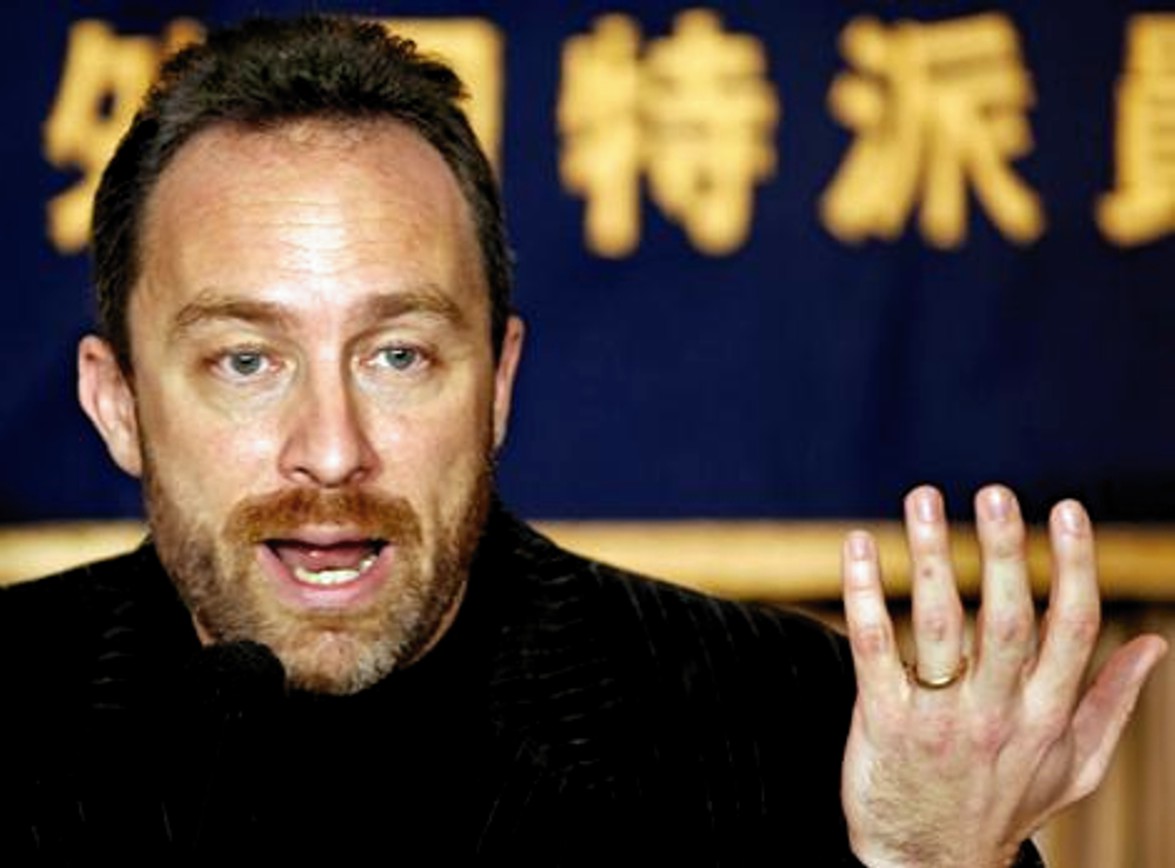
It’s been mentioned by several Seattle media outlets - but none nationally - that the Wikipedia founder Jimmy Wales (above) was considering somehow intervening to tilt the article on Meredith after “Bruce Fisher” started an online petition.
This post looks at how articles evolve under various checks and balances and the prospects for Jimmy Wales if he can indeed have any effect on the editing process - set up so that even he essentially can’t.
1) The principles of Wikipedia
Wikipedia, the online Encyclopedia that anyone can edit, is and has always been a fascinating case study on the strengths and weaknesses of Crowd Sourcing.
Its arcane and often byzantine rules that have evolved over a decade are often difficult to follow, and have produced an environment with a steep learning curve, one that renders submission of new articles very difficult for novices - a situation often commented upon in the media.
For all their complexity, Wikipedia’s core rules provide a framework sustaining over 3 million articles today just for its English edition. It has its flaws, but in the grand scheme of things it works out quite well for the majority of articles.
Wikipedia’s English language website is right now the eighth most visited in the world and there are various versions in other languages.
2) How Wikipedia articles are built
Any article must stand on two core concepts, neutrality and verifiability.
- Neutrality implies that the topic is described in as objective manner as possible, covering the relevant aspects while giving each the due weight they deserve.
- Verifiability is the embodiment of an implicit compact between Wikipedia and its readers, the assurance that we aren’t just making things up. This is illustrated by the statement “Wikipedia is about Verifiability, not Truth”. To that effect, any claims in an article must be verifiable through external reliable sources - If nobody made a claim before it appeared on Wikipedia, it will eventually be removed as “Original Research”.
For a source to be considered reliable, it must be either peer-reviewed or reported by a media outlet with a solid track record for fact checking and accuracy. In the final section of this piece, we will look at the shortcomings of that policy.
The three core content policies, “Neutral Point of View”, “Verifiability through Reliable Sources” and “No Original Research” are summed up in another guideline, the often misunderstood and maligned concept of Notability.
In Wikipedia-speak, Notability isn’t an indication of fame or importance, but refers to the notion that an article’s subject has been noted by others - that is, commented upon by multiple third party reliable sources in a non-trivial manner so that it is possible to verify that a Neutral Point of View is being maintained and no Original Research finds its way into the article.
Last but not least, articles involving living people are subject to particular considerations, called “BLP” (Biographies of Living Persons), here to ensure Wikipedia is particularly careful to avoid libel. The smearing of the prosecutor, or the portrayal of Guede as a lone wolf when the judicial truth established by the Italian courts makes him one among three participants are both violations of the BLP policy.
3) Consensus: How conflicts are ironed out
As appears evident, those policies are put to the test everytime an article addresses a contentious issue.
Quite often, the available reliable sources present multiple sides of a same story. The requirement of Neutrality is often confused with the notion of balance (the simple representation of all sides of an issue). The challenge arises when it becomes necessary to determine what weight to give to a specific point of view.
For example, the population’s sentiment regarding nuclear power generators today can be presented in two different manners by a news organization interviewing people in the street: presenting three persons extremely worried about nuclear power, and three persons expressing confidence in the technology.
It is a balanced presentation, but if 90% of the population is actually worried, the presentation doesn’t give the appropriate weighting to the issue, whereas interviewing 5 worried people and one unworried would have been closer to the reality.
In order to determine what an article should contain and to what extent, volunteers will often discuss matters and reach a consensus on an article’s talk (or discussion) page.
The English Wikipedia is home to a multitude of regular and occasional contributors hailing from every single country and culture of the globe. For this extraordinary melting pot to work out, participants in any discussions are expected to, first, assume that other participants are acting in good faith, second, treat each other with respect, and third, to accept that a compromise will have to be found that may not match their personal convictions.
The blogosphere and comment forms of newspaper reporting on the Murder of Meredith Kercher are packed full with contributors who believe that bullying and intimidation, outlasting and outshouting the opposition will win over other people.
Needless to say, this attitude is frowned upon in Wikipedia, and it is the reason why several contributors sympathetic to the Knox cause have been blocked from editing over the past two years.
In determining consensus, Wikipedia operates in a manner combining civil law and adversarial prosecution: arguments are heard based on established policies and guidelines, and prior decisions on similar situations are not taken into consideration.
The final call is usually made by an uninvolved editor who will review all arguments and try to determine what the strongest arguments representing the existing policies. This is also transient, as it is accepted that consensus can change and prior decisions can be revisited later on.
4) A little history of the Murder of Meredith Kercher article
Originally created as an article on Amanda Knox in late 2007, it was swiftly renamed to its present title and started to grow. And as the controversy around the case grew, more and more editors turned up trying to ensure that it presented “the Truth” as they understood it.
The FOA core arguments are familiar to readers of TJMK, of course: Amanda Knox was railroaded by the kangaroo courts of a third world country, a victim of rampant anti-americanism, by a corrupt and insane prosecutor and a brutal police force who convicted her out of thin air.
During early 2010 in particular, the regular Wikipedians trying to maintain a neutral coverage were subjected to heaps of abuse from some particularly aggressive Knox supporters.
After numerous reports on the administrative noticeboards, uninvolved admins stepped in, tried to get these users to conform to the acceptable norms of discourse, and eventually blocked them after they demonstrated their inability to do so.
At that stage, the FOA crowd started organizing their activity: a certain PhanuelB showed up and started arguing, supported by a string of new users who had never edited on anything else before.
This lasted for another three months, until PhanuelB got himself banned for the same atrocious behaviour, along with several of his supporters, while the others vanished without a trace at the same point. They all came back once, when a discussion was started around some content PhanuelB had intended to turn into an article before he got banned.
Through all this, the article has undergone several stages. In Spring 2010, it was a long laundry list of prosecution arguments countered by defense arguments - balanced certainly, but essentially useless. In early Summer, the article underwent a rewrite that almost halved its size and tried to prune much of those arguments.
At regular intervals, the article had to be protected due to excessive edit-wars, and is currently still “semi- protected”, that is, locked off to new accounts and anonymous contributors.
From the point of view of a Wikipedian without direct stakes in the case (I am an editor) the article was certainly perfectible, but did a reasonable job at presenting the main facts of the case, the judicial situation at present, and the nature of the controversies surrounding the case.
5) The FOA appeal to Jimmy Wales
Wikipedia co-founder Jimmy “Jimbo” Wales has abandoned most of his leadership functions over the course of the years, but still carries the prestige attached to his name.
The Open Letter published by “Bruce Fisher” was swallowed line, hook and sinker, and Wales entered the Murder of Meredith Kercher article rather like an elephant in a china shop, essentially accusing established editors who had laboured for years to try and maintain the article of having conspired to suppress and censor other points of view.
His point is aided, obviously, by the scores of media coverage generated by the Knox PR campaign, in publications and reports matching the letter of a “Reliable Sources”. See, there is a loophole in the policy in the sense that anything appearing on, say, CNN, is considered Reliable because CNN is a network with a reputation for fact-checking and accuracy.
As CNN’s own disclaimers state, though, opinions offered by people appearing on their talk shows are explicitly not endorsed by CNN. But the loophole in policy doesn’t address this nuance, and this is mostly where Wales is trying to give much more prominence to the Knox story.
Fortunately, Jimbo is also increasingly seen as out of touch with the rest of the Wikipedia community, and in practice enjoys no particular privileges. Concerns have been raised on his manner of refusing to hear to the other side of the story.
The article’s talk page is unlikely to quiet down for a while.
But while the FOA perspective is given additional weight at present, the aspect that Wales hasn’t acknowledged is that the article, at the time of this writing, has not just minimized certain aspects of the arguments presented by the Knox PR campaign, but conversely toned down much of the debunking of those same claims.
At this stage, neutrality can be preserved or even improved by providing additional sources.
The sentencing reports for instance are what is qualified as a primary source and can only serve to verify the letter of the courts’ decision. More valuable are media reports or scholarly works (in any language, by the way) that analyze and comment on Massei and its critics.
It is important however to remember that polite discourse is required. If a contributor is subjected to personal attacks, it is better to request politely but firmly that the attack be struck or redacted and move on. Treading lightly and arguing on content with conviction rather than condescension will help guarantee that any contributor can at least be heard.
***********
Gwaendar has been a wikipedia editor for several years.
Monday, March 28, 2011
The Sollecito Family Criminal Trial And Civil Trial For Leaking Evidence Will Both Start On 29 April
Posted by Peter Quennell
The Sollecito family face charges for releasing an evidence video to the Bari TV station Telenorba showing Meredith’s body unclothed.
Also for attempting to influence some politicians to get some cops investigating the case moved on. Several Telenorba TV Bari staff-members will also also face charges. The trial was postponed five weeks ago as the judge was still on another case.
It is now reported in Italy by the news service Adnkronos that at today’s brief hearing a Kercher family civil suit against the Sollecitos for this disrespecting of Meredith will run in parallel.
The Sollecito defense team want to dispute the Perugia court’s jursidiction as the alleged crimes took place in Bari and Rome. That seems unlikely to fly as the evidence leaked was taken from Perugia.
The next court date for the Sollecito family will be Friday 29 April.
Sixth Appeal Hearing: Andrea Vogt On The Testimony Of The Witness In The Square
Posted by Peter Quennell
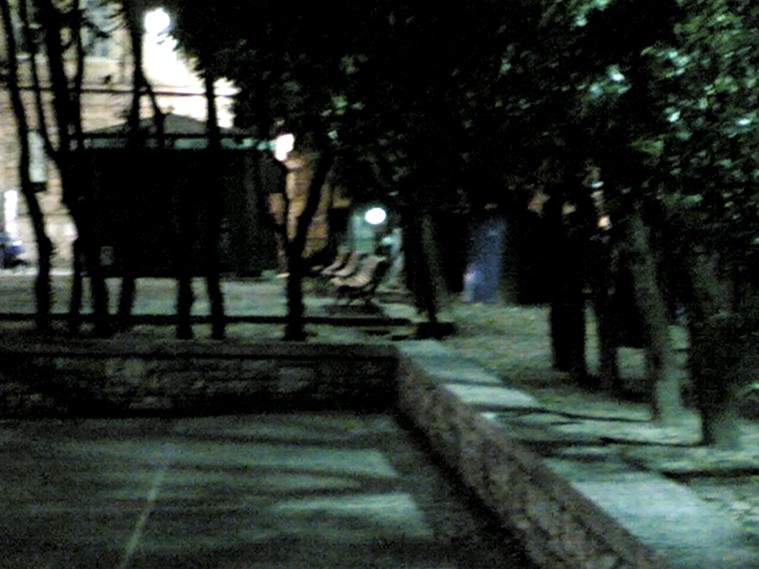
[Above and below: north side of Piazza Grimana showing the benches where Mr Curatolo normally sits]
Click here for Andrea Vogt’s report for the Seattle PI from the appeals court.
One of the case’s most colorful and controversial characters, Curatolo, 53, has spent many a day sitting in the small public Piazza Grimana square near the university where college students come to play basketball, buy hashish and hang out….
When questioned by prosecutors, he said he remembered seeing Knox and Sollecito having “an animated discussion” in the square, which overlooks the villa where Kercher’s body would be found the next day. It was not raining that night, he said, when asked about the weather. The following day the Carabinieri came around to ask him if he had seen anything, he recalled, and he had watched as forensic crime scene investigators worked around the house.
“Are you sure that the day after you saw those two discussing in an animated way you were questioned by the Carabinieri and saw the police at Via della Pergola in their white suits?” asked Mignini.
“Very sure,” Curatolo said. “As sure as I am that I am sitting here.”
But minutes later, in questioning by Sollecito’s lawyer Giulia Bongiorno, Curatolo also said he had seen young people in masks and getting on buses to go to the discos. The distinction is important because Halloween was Oct. 31 and there were likely students in costumes, getting on shuttles to go to the discos on the outskirts of town.
Kercher, however, was killed on the evening of Nov. 1, 2007, which is All Saints Day, a somber holiday in Italy, when it is less likely there were any festivities.
“I think it is clear that he does not have a lucid memory,” said a member of Knox’s legal team, Maria del Grosso, after the hearing. “And I think it was demonstrated today that he is not a credible witness.”
However, prosecutors and the lawyer for the Kercher family, Francesco Maresca, maintained the testimony was in line with previous statements.
“He repeated exactly what he said during the first trial. We still believe he is reliable.”
Good neutral report, as you’d expect, from Andrea Vogt who is the American reporter most consistently in the courtroom. All the other reports in English seemed to include a lot of fluff from the defenses.
We’ll have an analysis post on this hearing and the DNA testing in Rome later today or tomorrow.
**********
Below: Mr Curatolo’s preferred benches are at the far left there. If Sollecito did watch the gate of the house on the night he’d need to be to the far right there. The gate can easily be seen from there.



